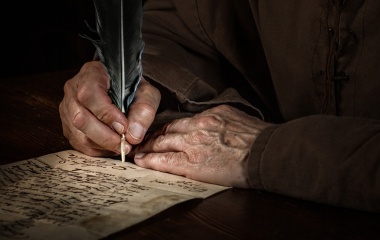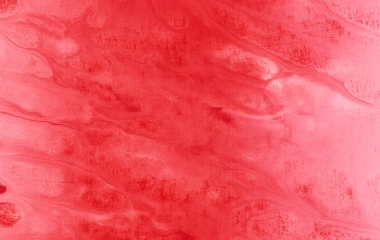
What's in a name? Clearly, names played an important role to our Biblical ancestors. The names of Chava, Avraham, Yitzchak, Yaakov and his children, and Moshe--to name just a few--reflect the circumstances of their birth, or a vision for their role in the future. We all know that people love hearing their name called, as it makes them feel important. Hence, common courtesy is to address people by their names instead of referring to "them".
This morning's parsha begins with the phrase, "and you should command the people of Israel...to keep the lamp constantly burning". Is that any way for G-d to refer to Moshe Rabbeinu? In fact, Moshe's name is nowhere to be found in Parshat Tezaveh, the only time such a phenomenon exists in the Chumash (exclusive of Sefer Breisheet, which takes place before his birth). Why?
Parshat Tetzaveh details the laws regarding the garments the kohanim wore as they worked in the Beit Hamikdash. The primary role of the kohanim, though, was not service in the Temple (where they worked three or four days a year), but rather, to serve as the teachers of Torah to the Jewish people. It was the descendants of Aharon, not those of Moshe, who were to become the kohanim, the teachers of Torah; and thereby, the spiritual heirs to Moshe Rabbeinu. While the Midrash suggests that Moshe was not happy that his descendants would not be the ones to take this role, he could take comfort in the thought that his Torah, Torat Moshe--with or without his name attached to it--would continue.
Moshe was not looking for any "credit". Let there be another messenger, as long as the message gets across! Moshe was witness to a portion of his role being transferred to his brother and his descendants. So as not to steal the spotlight from Aharon, Moshe "receded" into the background while his role was being diminished. Hence, the Torah makes no mention of his name. Aharon did not have to fear living in the shadow of his brother.
Parshat Tetzaveh is usually read during the week preceding Purim. Interestingly, the Megillah also is missing a very significant name, that of G-d Himself. Purim marks the period in which the direct role of G-d in history begins to recede. Prophecy has ended. The time has come for the Jewish people to be able to function despite hester panim, G-d's face being hidden. Mordechai and Esther must use their political skills to save the Jewish people. Unlike Pesach, no overt miracle will come to the rescue.
During the formative years of the Jewish nation, we needed the hand of G-d to guide us and prophets to teach us. Purim marks the transformation of the Jewish people. It is the holiday that celebrates the acceptance of the Oral Law which, though its rules are divine, has their application left to the discretion of the Sages of every generation. Man will have to apply the Torah without guidance from G-d.
Moshe Rabbeinu was the faithful messenger of G-d, bringing His word to the world. Yet the Torah is not dependent on Moshe, and is not even dependent on a "visible" G-d; the Torah itself is eternal. Though the names of Moshe and G-d may be missing from our Biblical reading this week, their presence is not. The hand of G-d can still be felt, and the Torah of Moshe continues to be studied each and every day. Though G-d is hidden those who look can see Him. May we be worthy to feel the presence of G-d in all that we do, making all of our endeavours an implementation of the Divine plan for the betterment of the world.



